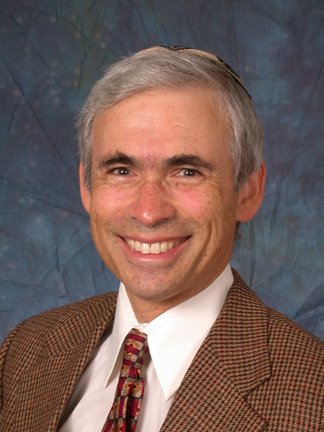Those of us of a certain age remember the heady days of the 1960s, when we hoped to create a new world of peace and love.
Fast forward half a century to the last election. How did the love generation devolve into today’s isolation, rage, and powerlessness? What went wrong?
This week’s parashah, with its narrative of great intentions gone awry, may provide some clues. The mishkan has been completed. Aaron and his sons have begun their initiation into the priesthood. The first ritual sacrifices were offered, the heavens unfolded in psychedelic glory, “and all the people saw, and shouted, and fell on their faces.” (Vayikra 9:24)
Then exaltation turned to disaster. Aaron’s sons Nadab and Abihu, in a burst of passion, offered their own sacrifices, only to perish by fire.
What went wrong? According to Jacob Milgrom, the esh zarah (alien fire) offered by the young men consisted of coals taken from someplace other than the altar. The incense was kosher, and burned properly inside the sanctuary; yet the offering was contaminated by the coals that kept it lit.
Since offering sacrifices was, at the time, a prime form of Tikkun Olam, we can ask ourselves why much of our good political work over the last 50 years seemed to backfire. What was our esh zarah?
Michael Lerner, in The Left Hand of God, suggests three shortcomings of progressive activists which, to me, represent forms of esh zarah:
1. Arrogance – Decades before a presidential candidate referred to half her opponent’s supporters as “a basket of deplorables,” progressives hurled insults at their adversaries: “pigs,” “racists,” “rednecks,” etc. People addressed like this will not embrace our message, even when we address the needs of those we look down upon.
2. Disrespect for sources of comfort and stability – Right-wing politicians may not serve the best interests of voters; however, they are shrewd enough to acknowledge the needs for stable family, safe neighborhoods, and respect for their supporters’ work and military service. Shouting matches about abortion, police brutality, or national security only undermine our best intentions with esh zarah.
3. Religiophobia/Antisemitism – On this point rabbis are on the receiving end of other progressives’ esh zarah. Those who reject religion as the source of major problems not only fail to recognize how Judaism and other traditions can be the source of the solution; they also alienate both close allies and God-fearing potential allies. Antisemitism on the left is a particularly ugly manifestation of religiophobia.
But the Torah is too subtle to let the tragedy of Nadab and Abihu stand alone. In the very same chapter, Moses castigates Aaron and his sons for burning the entire hattat (sin offering), rather than eating a portion of it. But when Aaron challenges him on this point, Moses uncharacteristically backs down. So what’s that all about?
Again turning to Milgrom, a hattat is supposed to be eaten to symbolically demonstrate how the contamination of sin can be overcome by the holiness of the priest. However, in extreme cases, such as the purgation of a year’s worth of contamination at Yom Kippur, the hattat is too potent to be ingested, and must be completely burned. In this case, the contamination caused by the deaths of Nadab and Abihu required burning, rather than eating the hattat.
Moses missed that, in this case, the work of Tikkun Olam was too great to be accomplished by “noshing” on single issues. Rather, it required a radical cleansing of the entire structure generating sin and the establishment of a new order. Applying this teaching to today, we recognize that protecting immigration rights, caring for the environment, and defending women’s reproductive health are NECESSARY but not SUFFICIENT. Instead, these times beckon us to come together to create the world of our dreams. This is the vision of the Network of Spiritual Progressives: a society oriented to a New Bottom Line of caring, justice, and awe at the wonders of creation; an economic plan to eliminate global poverty, and safeguards for corporate, environmental, and social responsibility. In the words of the Aleinu, “May we speedily behold the splendor of Your might…and all materialistic idols swept away to repair the world through Your majestic holiness!”
Michael Zimmerman is the rabbi of Reconstructionist Congregation Kehillat Israel in Lansing, MI. He is the founder and organizer of the Greater Lansing Chapter of the Network of Spiritual Progressives and serves on the Editorial Advisory Board of Tikkun Magazine.


